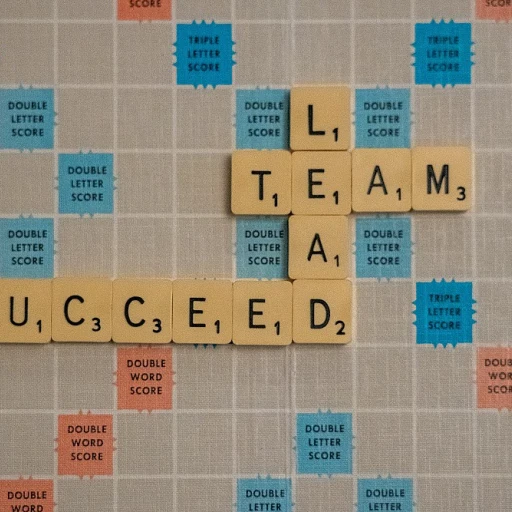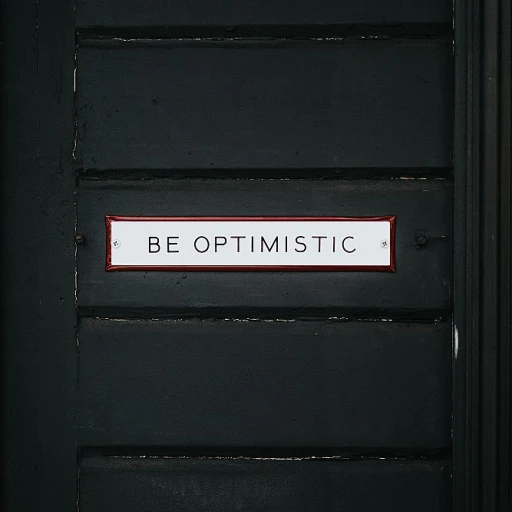
Understanding the role of childcare interview questions
Why Interview Questions Matter in Childcare Hiring
When it comes to hiring for childcare roles, the interview process is more than just a formality. The questions asked during a childcare interview are designed to reveal not only a candidate’s experience but also their approach to working with children, their understanding of child development, and their ability to handle real-life situations in a daycare or early childhood education environment. These questions help employers ensure that the person they hire will provide safe, nurturing, and educational care for children of different age groups.
What Interview Questions Aim to Uncover
Interview questions in childcare settings are crafted to assess a range of skills and qualities. Employers want to know how candidates will respond to challenges, communicate with parents, and support the emotional and physical well-being of children. For example, questions may focus on problem solving, conflict resolution, and open communication. The goal is to find someone who not only has the right qualifications but also the soft skills needed to create a positive environment for children.
- Experience with different age groups: Understanding how a candidate adapts their approach depending on the child’s age is crucial.
- Knowledge of child development: Employers look for candidates who can support children’s growth and learning at every stage.
- Ability to handle emergencies: Interview questions often explore how a candidate would react in urgent situations to ensure children’s safety.
- Communication skills: Both with children and parents, clear and open communication is key.
Setting the Stage for a Successful Hiring Process
Effective interview questions are the foundation of a strong hiring process in childcare. They help identify candidates who are not only qualified on paper but also demonstrate the empathy, patience, and adaptability needed for working with children. By focusing on both technical skills and personal qualities, interviewers can make informed decisions that benefit children, families, and the entire daycare team.
For those interested in making the hiring process more inclusive and supportive, exploring practical DEI tips for HR job interviews will help ensure every candidate has a fair opportunity to showcase their strengths.
Key qualities employers look for in childcare candidates
What Sets Top Childcare Candidates Apart
When hiring for childcare roles, employers look for more than just basic qualifications. The right candidate will demonstrate a blend of technical knowledge, soft skills, and genuine passion for working with children. Understanding these key qualities can help both candidates and interviewers navigate the hiring process more effectively.
- Experience with Different Age Groups: Candidates should show familiarity with the specific age group they will be caring for. Early childhood education experience is highly valued, as it ensures the candidate understands child development stages and appropriate activities.
- Strong Communication Skills: Open communication with children, parents, and colleagues is essential. Employers often ask interview questions that reveal how a candidate communicates in challenging situations, such as handling a conflict with a parent or explaining a child’s progress.
- Problem Solving and Conflict Resolution: The ability to manage disagreements between children or address unexpected issues calmly is crucial. Sample answers to scenario-based questions can highlight a candidate’s approach to problem solving and conflict resolution.
- Patience and Empathy: Working children requires patience and a caring attitude. Candidates who can provide example answers showing empathy and understanding will stand out during the interview.
- Adaptability and Flexibility: Childcare environments can be unpredictable. Employers look for candidates who can adapt to changes in routine, manage multiple tasks, and remain calm under pressure.
- Commitment to Child Safety: Ensuring a safe environment children is non-negotiable. Interviewers may ask questions about how a candidate would respond to emergencies or maintain safety standards in a daycare setting.
- Teamwork and Collaboration: Childcare professionals often work in teams. Employers value candidates who can collaborate effectively with others to provide the best care for children.
These qualities are often explored through targeted interview questions and scenario-based assessments. By focusing on these areas, both candidates and interviewers can ensure a good fit for the childcare job and create a positive environment for children’s growth and development. For more insights on leadership and management in HR job interviews, you may find this resource on inspiring quotes on management and leadership helpful.
| Quality | Sample Interview Question | What It Reveals |
|---|---|---|
| Experience with Age Group | Can you describe your experience with toddlers? | Familiarity with child development and age-appropriate care |
| Communication Skills | How do you communicate a child’s progress to parents? | Ability to maintain open communication with families |
| Problem Solving | Describe a time you resolved a conflict between children. | Approach to conflict resolution and problem solving |
| Adaptability | How do you handle changes in routine? | Flexibility and ability to manage unexpected situations |
| Child Safety | What steps do you take to ensure a safe environment? | Commitment to child safety and emergency preparedness |
Common childcare interview questions and what they reveal
What Interview Questions Reveal About Childcare Candidates
Childcare interview questions are designed to uncover more than just a candidate’s qualifications. They help employers understand how well a person will fit into the daycare or early childhood education environment. The questions also reveal a candidate’s approach to child development, problem solving, and communication with both children and parents.Popular Childcare Interview Questions and Their Purpose
Many interviewers use a mix of standard and scenario-based questions to assess candidates. Here are some common examples, along with what each question aims to reveal:| Interview Question | What It Reveals | Sample Answer |
|---|---|---|
| "Can you describe your experience working with children of different age groups?" | Assesses experience, adaptability, and understanding of child development at various stages. | "I have worked with infants, toddlers, and preschoolers, adapting my approach to each age group’s needs. For example, with toddlers, I focus on language development and social skills." |
| "How do you handle conflict between children?" | Evaluates conflict resolution skills and ability to maintain a safe environment for children. | "I encourage open communication, help children express their feelings, and guide them to find a solution together." |
| "What would you do if a parent expressed concern about their child’s progress?" | Shows communication skills, empathy, and professionalism in dealing with parents. | "I would listen carefully, share observations, and work with the parent to develop a plan to support the child’s development." |
| "Describe a time you had to manage multiple children with different needs." | Highlights time management, organizational skills, and ability to provide individualized care. | "In my previous daycare job, I balanced activities for children with different interests, ensuring each child felt included and engaged." |
| "How do you ensure a safe and stimulating environment for children?" | Assesses awareness of safety protocols and creativity in early childhood education. | "I regularly check the environment for hazards and plan activities that encourage exploration and learning." |
Why These Questions Matter in the Hiring Process
These interview questions help employers evaluate both hard and soft skills. They look for candidates who can demonstrate:- Strong communication and open communication with children and parents
- Problem solving and conflict resolution abilities
- Understanding of child development and early childhood education
- Experience in a daycare or similar child care setting
- Ability to adapt to different age groups and needs
How to prepare for scenario-based questions
Approaching Scenario-Based Interview Questions
Scenario-based interview questions are a staple in the hiring process for childcare roles. These questions help employers assess how a candidate might react in real-life situations involving children, parents, and colleagues. They go beyond theoretical knowledge, focusing on practical skills like problem solving, conflict resolution, and open communication.Why Scenario Questions Matter
Employers use scenario questions to evaluate a candidate’s ability to handle the unpredictable nature of working with children. These questions reveal soft skills, such as patience, adaptability, and empathy, which are essential in early childhood education and daycare environments. They also test a candidate’s understanding of child development and their approach to ensuring a safe, nurturing environment for every age group.Common Scenario-Based Questions and What They Assess
- How would you handle a child who refuses to participate in group activities?
Assesses: Problem solving, understanding of child development, and ability to adapt activities to individual needs. - Describe a time when you had to manage a conflict between two children.
Assesses: Conflict resolution skills, communication, and ability to maintain a positive environment. - What would you do if a parent expressed concern about their child’s progress?
Assesses: Open communication, professionalism, and ability to work collaboratively with parents. - How do you respond if you notice a child is withdrawn or upset over a period of time?
Assesses: Observation skills, empathy, and knowledge of early childhood care protocols.
How to Prepare for Scenario-Based Questions
Preparation is key for candidates aiming to succeed in a childcare interview. Here are some practical steps:- Reflect on past experience: Think of specific examples from previous jobs or training where you handled challenging situations with children or parents.
- Understand the age group: Tailor your answers to the specific developmental needs of the children you will be working with, whether in daycare or early childhood education settings.
- Practice clear, concise answers: Use the STAR method (Situation, Task, Action, Result) to structure your responses, ensuring you highlight your skills and the positive outcomes.
- Demonstrate soft skills: Show your ability to stay calm, communicate openly, and adapt to changing circumstances in your answers.
Sample Scenario Question and Example Answer
| Scenario Question | Sample Answer |
|---|---|
| A child in your care becomes upset and refuses to join the group activity. What do you do? | I would first approach the child calmly and ask if they want to talk about what’s bothering them. If they prefer to be alone, I’d respect their space but stay nearby to offer support. Later, I’d try to engage them in a one-on-one activity related to their interests, gradually encouraging participation with the group. I’d also communicate with parents to ensure we’re supporting the child consistently at home and in the daycare environment. |
Final Thoughts on Scenario Preparation
Scenario-based interview questions are designed to uncover how candidates think on their feet and apply their knowledge in real situations. By preparing thoughtful, experience-based answers, candidates can demonstrate their readiness to provide high-quality child care and contribute positively to any childcare or daycare team.Red flags and positive signs HR should watch for
Spotting Warning Signs During Childcare Interviews
During a childcare interview, it is crucial for HR professionals and hiring managers to identify both red flags and positive indicators in candidates’ responses. This helps ensure the safety, well-being, and development of children in any care environment. Here are some practical insights to guide your evaluation process:
- Lack of Specific Experience: If a candidate struggles to provide clear examples of working with children or cannot answer scenario-based questions about child development or conflict resolution, this may signal insufficient experience for the age group or daycare setting.
- Poor Communication Skills: Effective childcare requires open communication with children, parents, and colleagues. Candidates who give vague answers or avoid discussing past interactions may lack essential soft skills.
- Negative Attitude Toward Children or Parents: Listen for any signs of frustration, impatience, or judgment in their answers. A positive, respectful approach is vital in early childhood education and care.
- Unclear Approach to Problem Solving: Childcare often involves unexpected situations. Candidates should demonstrate practical problem-solving skills and a calm demeanor when describing how they would handle challenging scenarios.
- Inflexibility: The ability to adapt to different children, schedules, and environments is key. If a candidate seems unwilling to adjust or learn, this could impact the quality of care provided.
Positive Indicators to Look For
While red flags are important, it’s equally essential to recognize qualities that suggest a candidate will thrive in a childcare job. Look for these positive signs during the interview:
- Enthusiasm for Working with Children: Genuine passion for early childhood education and child development often comes through in a candidate’s tone and examples.
- Clear, Relevant Experience: Strong candidates can share specific stories about their time in daycare, child care, or similar roles, highlighting their skills and growth.
- Strong Problem-Solving and Conflict Resolution: Look for thoughtful answers to scenario-based questions, showing the candidate’s ability to handle real-life challenges with care and professionalism.
- Commitment to Safety and Well-being: Candidates who emphasize the importance of a safe, nurturing environment for children demonstrate a responsible approach to care.
- Willingness to Collaborate: Effective childcare often involves teamwork. Positive signs include examples of working with parents, colleagues, and children to create a supportive environment.
By focusing on these red flags and positive indicators, HR professionals can make informed decisions during the hiring process, ensuring the best fit for both the children and the care environment.
Practical tips for both candidates and interviewers
Strategies for a Smooth and Insightful Interview
Whether you are a candidate or an interviewer, a successful childcare interview depends on preparation, clear communication, and understanding the unique needs of working with children. Here are practical tips to help both sides of the table get the most out of the hiring process.
- Research the childcare setting: Candidates should learn about the daycare or early childhood education center’s philosophy, age group focus, and environment children will be in. Interviewers should ensure the job description and expectations are clear.
- Prepare for scenario-based questions: Candidates can reflect on real-life situations involving conflict resolution, problem solving, or working with parents. Having a sample answer or example answer ready will help demonstrate your skills and experience.
- Showcase soft skills: Both sides should focus on communication, patience, and adaptability. These are essential qualities for anyone working children and will often be explored through interview questions.
- Ask open-ended questions: Interviewers should use questions that encourage candidates to share their approach to child care, child development, and teamwork. Candidates can prepare by thinking about their experience with different age groups and how they ensure a safe, nurturing environment.
- Clarify expectations about working hours and responsibilities: Candidates should ask about daily routines, parent communication, and support for ongoing childhood education. Interviewers should be transparent about the demands of the job and opportunities for growth.
- Practice open communication: Both candidates and interviewers should be honest about their needs and limitations. This will help ensure a good fit for both the childcare provider and the children in their care.
Checklist for Interview Day
| For Candidates | For Interviewers |
|---|---|
| Bring copies of certifications and references | Prepare a list of interview questions and evaluation criteria |
| Dress appropriately for a childcare environment | Set up a welcoming, child-friendly interview space |
| Be ready to discuss specific experience with children | Allow time for candidates to ask questions answers |
| Demonstrate knowledge of child safety and early childhood development | Observe candidate’s interaction style and soft skills |
By focusing on these practical steps, both candidates and interviewers can ensure the daycare interview is productive and leads to the best possible match for the children, parents, and care team.













